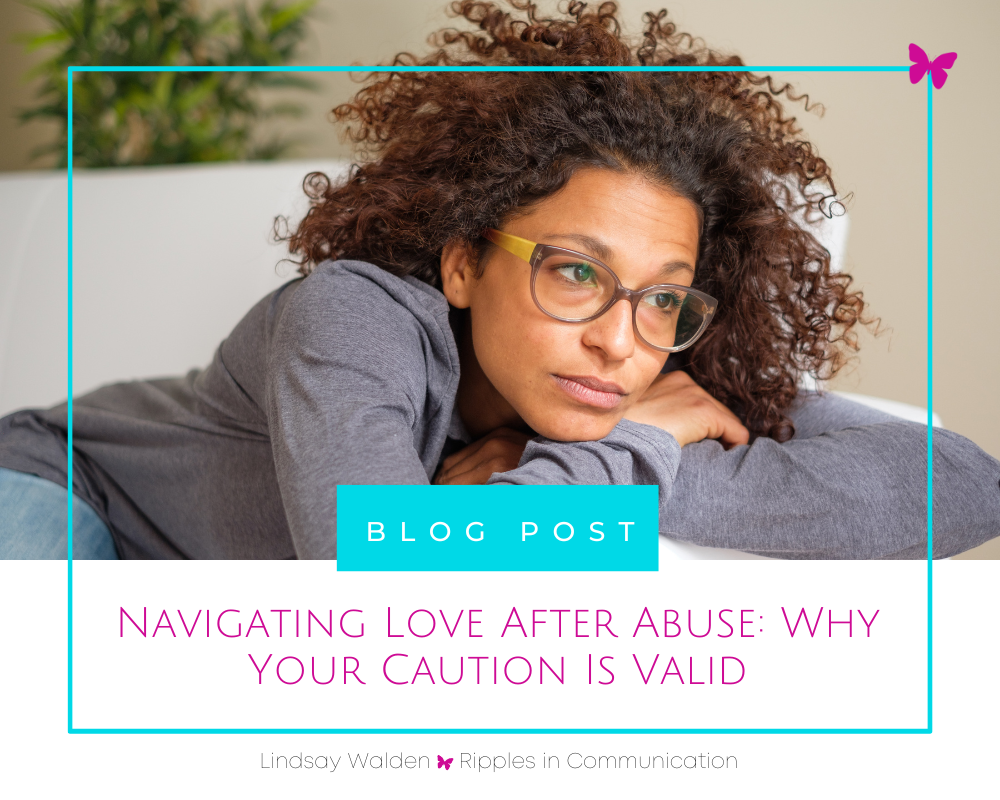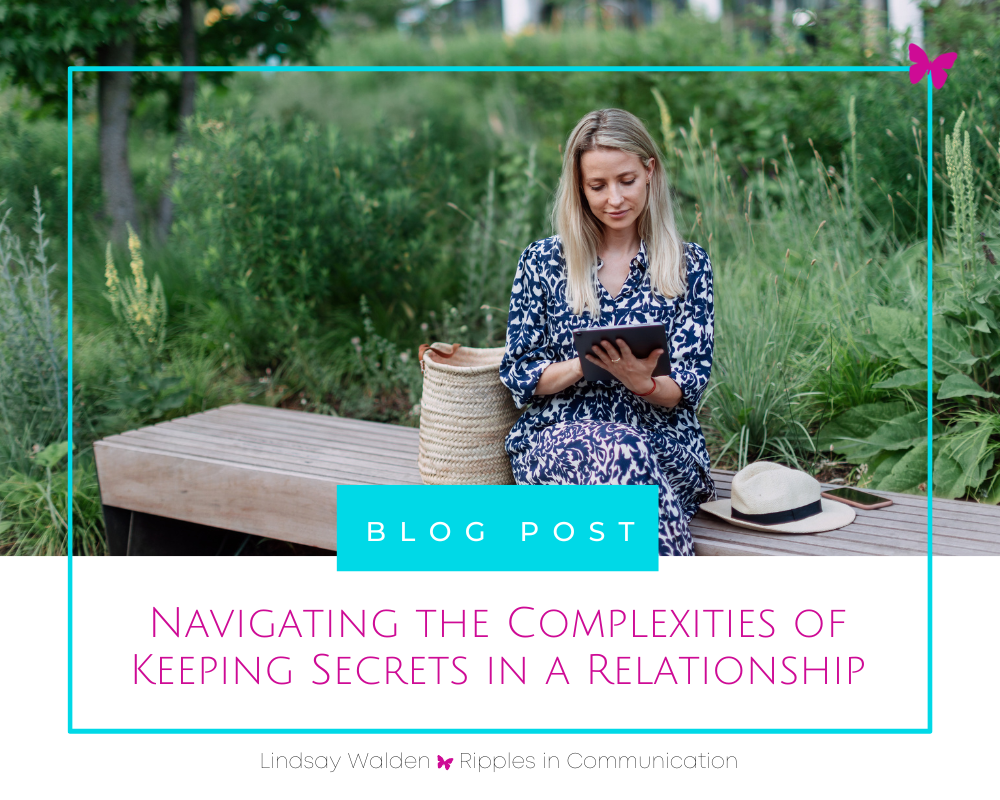Navigating Love After Abuse: Why Your Caution Is Valid
Leaving an abusive relationship takes immense courage and strength. Taking a break from dating and giving yourself time to heal and recover is a crucial step towards reclaiming your happiness and well-being. So, when you finally meet someone new who seems wonderful, it's only natural to feel hesitant and wonder when the other shoe might drop. Rest assured, there's nothing wrong with you. In fact, your cautious approach is a testament to your resilience and your brain's protective mechanisms. Let's explore this further and gain a fresh perspective on your situation.
Have you gotten my FREE Relationship Communication Guide yet? Start building an authentic, conscious, and thriving relationship with your partner TODAY. Say goodbye to misunderstandings, conflicts, and missed opportunities for a deeper connection. These are the same tips and practical advice I give to my clients every day. With this guide, you'll be equipped to navigate any communication challenge and build a strong and fulfilling bond with your partner. Click the button below to enter your email address and I will send the guide to your inbox right away!
Discover the path to finding love again after leaving an abusive relationship. Navigate healing, trust, and happiness.
Fresh Perspective On Love After Abuse
Understanding Your Hesitation:
If you've experienced an abusive or toxic relationship in the past, it's understandable that you would approach new dynamics with caution. Trust has been damaged, and your instinct for self-preservation is on high alert. While this new person may appear great, it's challenging for you to feel completely safe and trust that they are genuinely who they claim to be.
Recognizing the Early Warning Signs:
Often, at the beginning of a relationship, we may overlook or dismiss certain behaviors that appear slightly off. We rationalize them as anomalies or isolated incidents, unaware that they could be the first cracks in the relationship's foundation. Since you may not have recognized these red flags before, your brain may now be hyperactive in its efforts to keep you safe. It scrutinizes every little detail, potentially magnifying insignificant issues. It's important to remind yourself that if you constantly search for problems, you are likely to find them.
Embracing Imperfection:
Perfection does not exist in relationships. Instead of seeking perfection, we can aim for finding a person who complements and supports us. When we acknowledge the underlying reasons for our brain's hyperactivity, it allows us to find a healthier balance. Understanding that your brain is trying to keep you safe can help ease some of the overthinking and allow you to approach the relationship with a more open mindset.
From darkness to empowerment: Find hope, happiness, and love after an abusive relationship
Validating Your Feelings:
It is perfectly valid and understandable to feel scared and hesitant. Your past experiences have left an indelible mark, and it's crucial to acknowledge and validate these emotions. However, it's important to remember that just because your feelings are valid doesn't necessarily mean they should dictate your actions. Finding a healthy middle ground is key.
Open Communication:
Having an open and honest discussion with your new partner about where you stand can be incredibly beneficial. You don't owe anyone more information than you're comfortable sharing, but expressing your desire to take things slowly can help set appropriate expectations. Effective communication fosters understanding and can help build a foundation of trust.
The Role of Therapy:
Seeking support from a therapist is highly recommended, especially when transitioning from an abusive relationship. Working with a therapist can provide a safe space to explore your thoughts, emotions, and concerns. They can help you gain different perspectives, validate your experiences, and assist you in navigating the complexities of starting a new relationship.
Embarking on a new romantic journey after leaving an abusive relationship requires courage, patience, and self-compassion. Your cautious approach is a natural response to your past experiences and reflects your brain's efforts to keep you safe. By acknowledging and validating your feelings, embracing imperfections, and fostering open communication, you can gradually build trust and create a healthier, more fulfilling relationship. Remember to take things at your own pace and lean on the support of trusted professionals or loved ones along the way. You deserve love, respect, and happiness in your life, and with time, healing, and self-care, you can create a brighter future.
Overcoming the scars of an abusive past and embracing a new chapter of love. Learn how to rebuild trust and find happiness.







